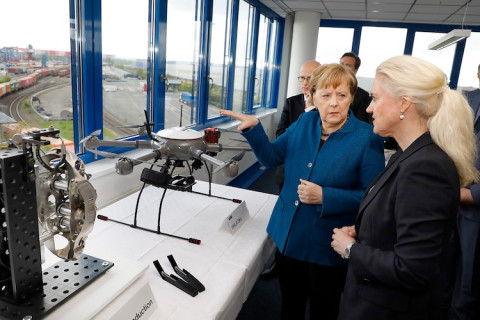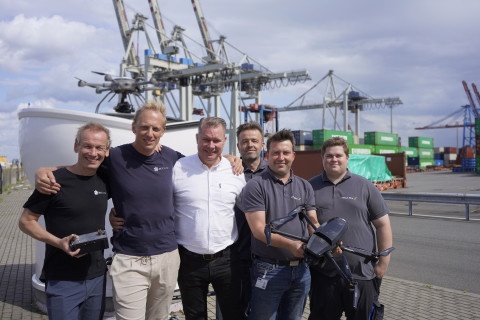Transforming Medical Logistics: The Role of Drones and Advanced Control Systems
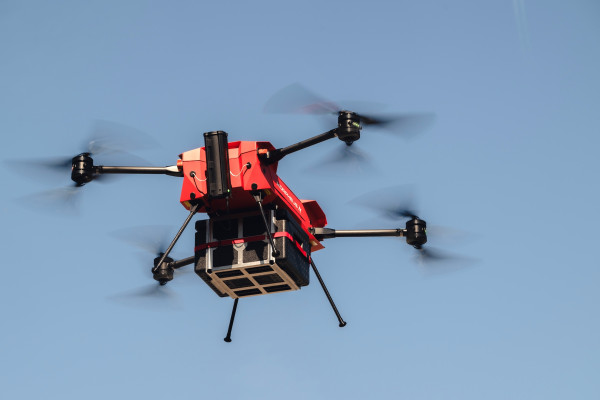
Did you know that blood, organs, and emergency medication often have a short window of 1 to 6 hours for delivery? The process becomes even more relevant when you consider that faster delivery of blood and organs can increase long-term survival rates as well. Utilizing drones in medicine delivery not only opens up an additional channel and hence increases the reliability of a supply chain. Fully automated drone delivery in particular reduces delivery costs by as much as 50-70% per mile relative to traditional transportation.
But delays can mean life or death.
As healthcare systems come under pressure to optimize efficiency, drone technology is already opening up a new world of medical logistics today, which will transform medical care.
Speed and Reliability for Medical Logistics
Unlike conventional transport, drones can easily bypass traffic, reach remote areas, fly automatically, and can be deeply embedded into workflows and systems. In emergencies, this speeds up response times and can contribute to more successful treatments.
In Scotland (1), the medical logistics by drone has demonstrated that the delivery could be reduced from hours to 30 minutes. Faster deliveries aren’t just about convenience – it saves lives, a University of Pennsylvania report(2) stated, where blood transported by drones in Rwanda(3) reduced fatalities from postpartum hemorrhages by 51%.
HHLA Sky, Morpheus and Eurofins Partnership
One ongoing case is the partnership of Morpheus Logistik, Eurofins GeLaMed, and HHLA Sky, that is already effectively transforming medical lab logistics within Germany.
Through this collaboration, lab samples are transported by HHLA Sky’s X25 drones from hospitals to the Eurofins GeLaMed lab in Iserlohn, Germany. This process is fully automated and controlled by HHLA Sky’s Open Integrated Control Center (ICC).
The drones are operated according to a secure, GDPR-compliant, and under the German Federal Aviation Authority’s SAIL III-approved solution. It cuts delivery times drastically because it avoids road traffic and delivers directly between hospitals and labs, allowing patients to be diagnosed and treated more quickly, reducing CO₂ emissions and transportation costs as well.
The Power of Centralized Control for Medical Logistics
Its heart lies in advanced coordination and monitoring. HHLA Sky's Open Integrated Control Center (ICC) streamlines automation for drone and mobile robot fleets (carrying out inspection, survey, delivery, or surveillance tasks). The open-system IoT platform enables simultaneous BVLOS operation of 100+ devices from a single hub, integrates third party drones and robots and interoperates with existing processes and IT systems.
The Open ICC is the world’s first IEC 62443 cybersecurity-certified solution for operating automated drone and mobile robot processes at scale. It is both an IoT platform and a process management system that automatically and securely manages and monitors more than 100 drones and mobile robots running in parallel across multiple locations. Its browser-based software allows easy deployment so that operators can control missions through standard web browsers like Chrome, Firefox, or Safari.
Such flexibility is invaluable in medical logistics. Operators can manage and monitor various types of drones and mobile robots, including the V25 eVTOL drone from HHLA Sky, which is used to cover long-distances for deliveries, as well as surveying and monitoring tasks. In transporting mid-sized payloads up to 100 kilometers to and fro, the V25 requires only a 5x5 meters area for take-off and landing, ideal in getting medical supplies delivered to off-grid locations.
By taking the operator through critical mission planning parameters, such as geofencing, payload, and altitude, the ICC ensures that every mission meets strict safety and regulatory standards. The "four-eyes" principle, which requires independent authorization of missions, provides another layer of protection that reduces the chance of human mistake.
Precision Delivery for Sensitive Cargo
Temperature-controlled payloads in drones are capable of delivering sensitive biological compounds while maintaining strict environmental standards. The operators have complete situational awareness of each mission with the ICC, owing to which critical deliveries are taken care of with precision and attention.
Consider the example of time-critical medical samples that need to reach a lab for immediate testing. Ground transport can be delayed by traffic or geographic barriers. Drones, piloted by a centralized and automated command system, can dramatically reduce transit times significantly, reduce risks, and improving patient care.
In the UK, NHS Scotland have trialed drone delivery reducing delivery time for healthcare supplies from a number of hours to 30 minutes. This can significantly speed up key decision making and deliver same day diagnosis and treatment, shorten waiting lists and improve lives.
Ensuring environmental stability in transit is crucial for handling blood products, vaccines, and other temperature-sensitive cargo. The Open ICC supports ensuring compliance with medical standards and the thread of tampered deliveries.
Building Resilient Medical Supply Chains
The use of drones in healthcare logistics extends beyond emergencies. They can also supplement routine deliveries from hospitals to laboratories, facilitate supply chain resiliency, and bridge healthcare gaps in underserved regions. This is especially beneficial for remote, rural, or disaster-stricken areas where traditional logistics are impacted.
The Open ICC's ability to manage multifleet drones and ground-based robots is the top advantage of maintaining supply chain continuity. For example, health facilities can schedule routine shipments of diagnostic samples or pharmaceuticals with emergency capability for emergency situations. This kind of operational flexibility supports an agile and responsive healthcare infrastructure than before deployed.
With regulations in evolution, the ability to support large-scale drone operations will be a decisive factor in scaling these services effectively. Solutions and systems such as the ICC are already paving the way for safer, faster, and more efficient medical logistics across the world.
Shaping the Future of Medical Delivery
As greater priority is given to faster, safer, and more reliable medical logistics, drone technology combined with fully automated, robust operational management is ready to assist in shaping the future of healthcare delivery. And with offerings like HHLA Sky's Open Integrated Control Center, the sector is well-placed to meet this challenge better than ever before delivering critical medical supplies where and when they are needed most, safely and securely.
From emergency responses to routine healthcare logistics, the integration of drone technology and centralized control is not just an innovation, but a imperative of efficient medical delivery. As medical demands evolve, the ability to safely and efficiently coordinate large-scale drone operations will change the way healthcare networks distribute life-saving resources worldwide.
Discover more
For more details on HHLA Sky's cargo drone X25 and how to automate and scale drone delivery services with our the Open Integrated Control Center solution, please contact your personal representative or email us at sky@hhla.de.
Meet Germany’s pioneers in medical drone logistics to access B2B drone delivery services today: Morpheus Logistik.
For clinical diagnostics, visit the website of our pioneering partner Eurofins Clinical Diagnostics DACH & GelaMed.
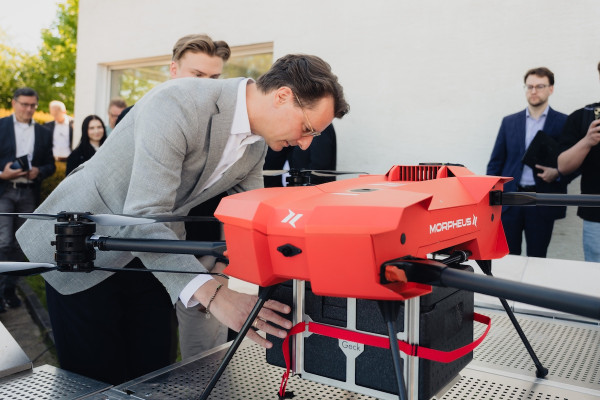
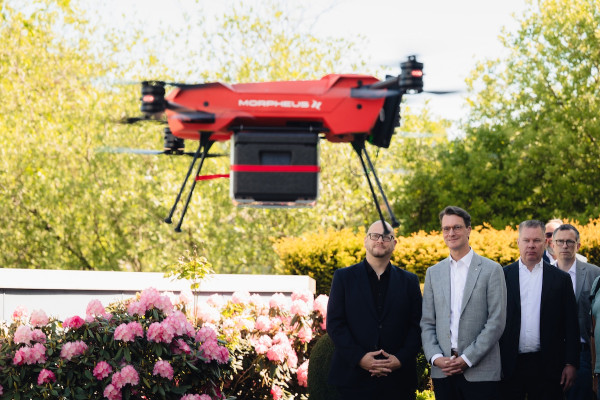
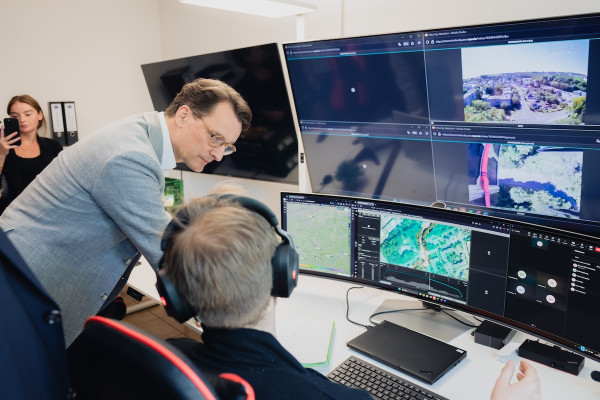
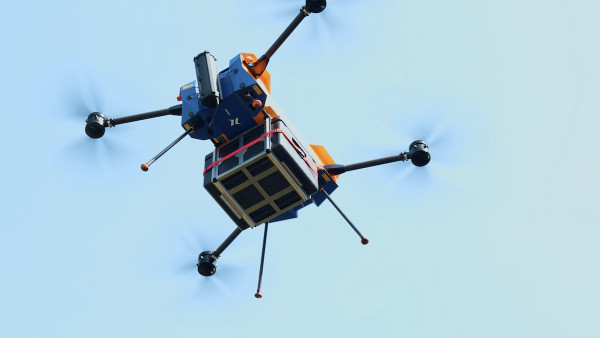
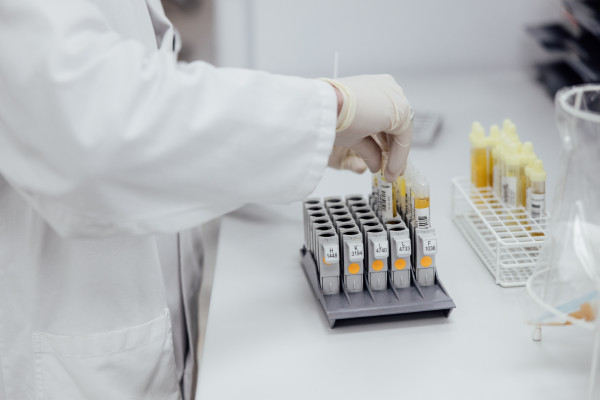
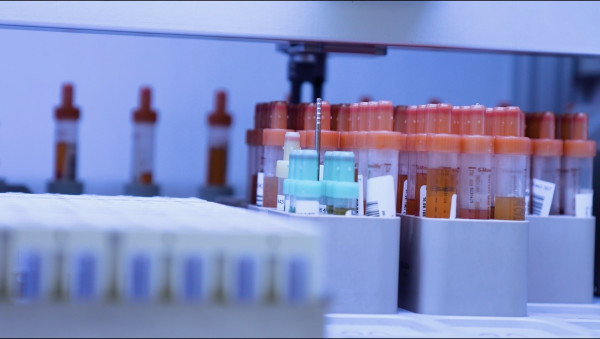
Sources
1) Drone trials in Scotland have shown that using drones can cut medical delivery times from several hours—often as long as five—to just 30 minutes, particularly for supplies sent to and from remote islands and hospitals.
2, 3) A University of Pennsylvania report found that drone-transported blood in Rwanda was linked to a 51% reduction in fatalities from postpartum hemorrhage.
